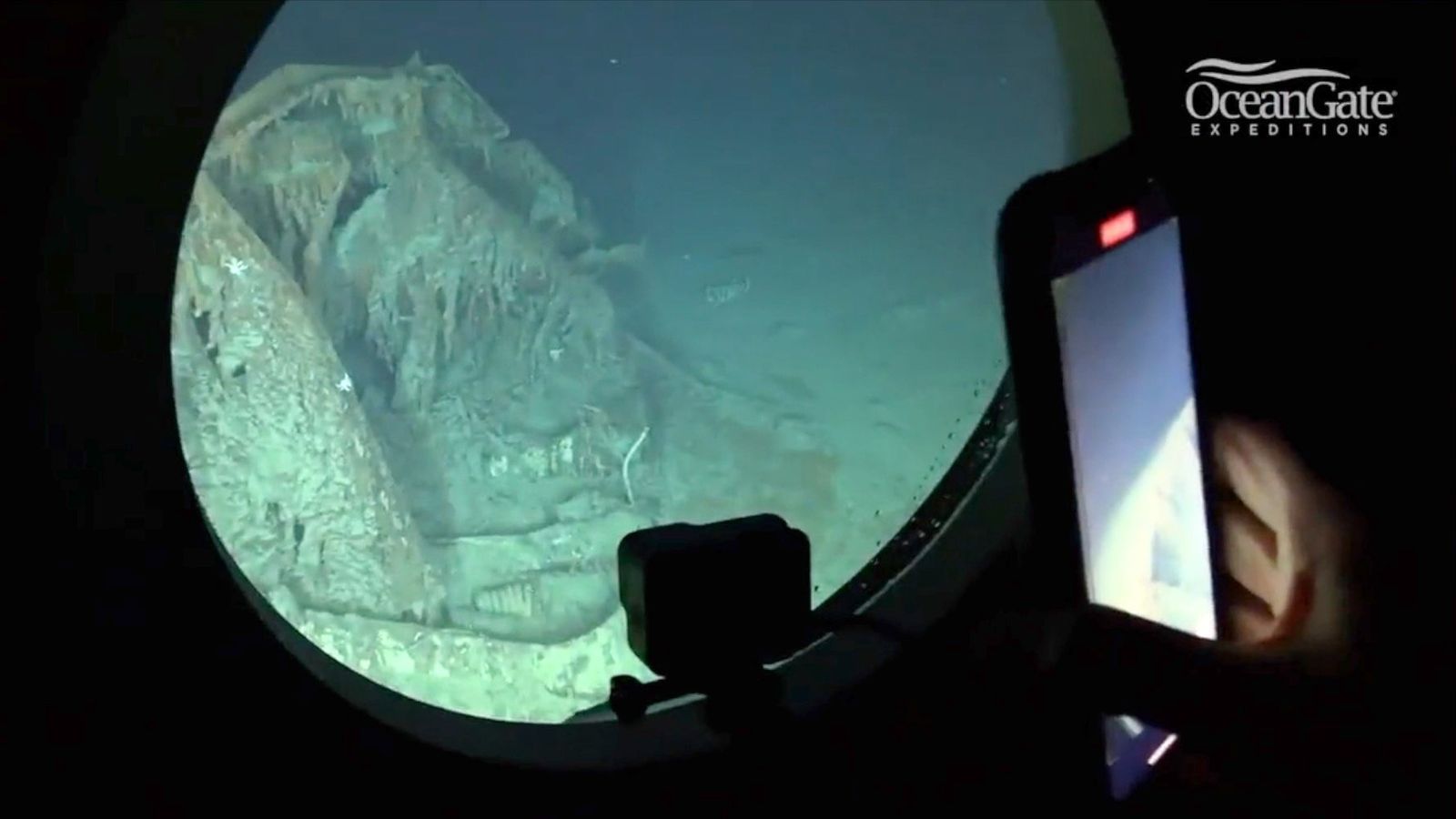An expert who raised concerns about the Titan submersible five years ago has told Sky News that his warnings were not heeded.
Back in 2018, William Kohnen had expressed fears that the vessel’s design and construction were not being tested by an independent third party.
In a letter to OceanGate – the company that owns the missing sub – he had warned that a “single negative event” could undo an “enviable” safety track record that spanned 40 years.
‘Debris field’ found in search for Titan – live updates
Please use Chrome browser for a more accessible video player
On behalf of industry experts, Mr Kohnen had written: “Our apprehension is that the current experimental approach adopted by OceanGate could result in negative outcomes (from minor to catastrophic) that would have serious consequences for everyone in the industry.”
Speaking to Sky News after a “debris field” was found at the search site for Titan, Mr Kohnen said: “Father Neptune has absolutely no patience for humanity – if we get it wrong, we get it wrong and we pay the price.
“If we play in this game, we have to be absolutely sure of ourselves.
“We say we have rules and regulations – well they come because of mistakes, because of things we have learned, and we embody that in a process of certification.”
The letter from the Marine Technology Society had been addressed to OceanGate’s CEO Stockton Rush, who is one of the five men on board the missing submersible.
As well as lacking international safety certification, an old PlayStation controller is used to steer Titan, which Mr Rush defended as “super durable”.
OceanGate’s website adds: “The use [of] off-the-shelf components helped to streamline the construction and makes it simple to operate and replace parts in the field.”
Read more:
What it’s like in a fully-certified submissible
All Titan search vessels are now in place
Fate of missing passengers may rest on one man
Please use Chrome browser for a more accessible video player
Mr Kohnen had argued that it was critical for the company to spend additional time and expense on adhering to industry standards – but Mr Rush had claimed regulators were holding OceanGate back and stifling innovation.
“OceanGate was taking a strategy of ‘well, we intentionally break the rules because we can do it better and faster’,” Mr Kohnen said.
He explained: “Nobody has made a five-person submersible going 4,000m. Most of the submarines – there’s 10 submarines that will go 4,000m or deeper in the world – they are all certified and they tend to be three-people vessels with one pilot and two occupants for research.
“To do five passengers, it does push the envelope and you’ve got to do the numbers right.
Mr Kohnen added that there are vessels capable of sending passengers to depths of 6,000m and 7,000m, but each went through a certification process.
“Submitting it to third-party review on a new design, we’re doing ourselves a favour and following the North Star in our industry,” he said.
Arthur Loibl – who travelled aboard Titan as a passenger in 2021 – told Sky News that he felt the vessel “was not safe”, and “everybody was nervous” on the trip.
Communication with Titan was lost last Sunday during a voyage to the Titanic shipwreck in the North Atlantic off the coast of Canada.






















